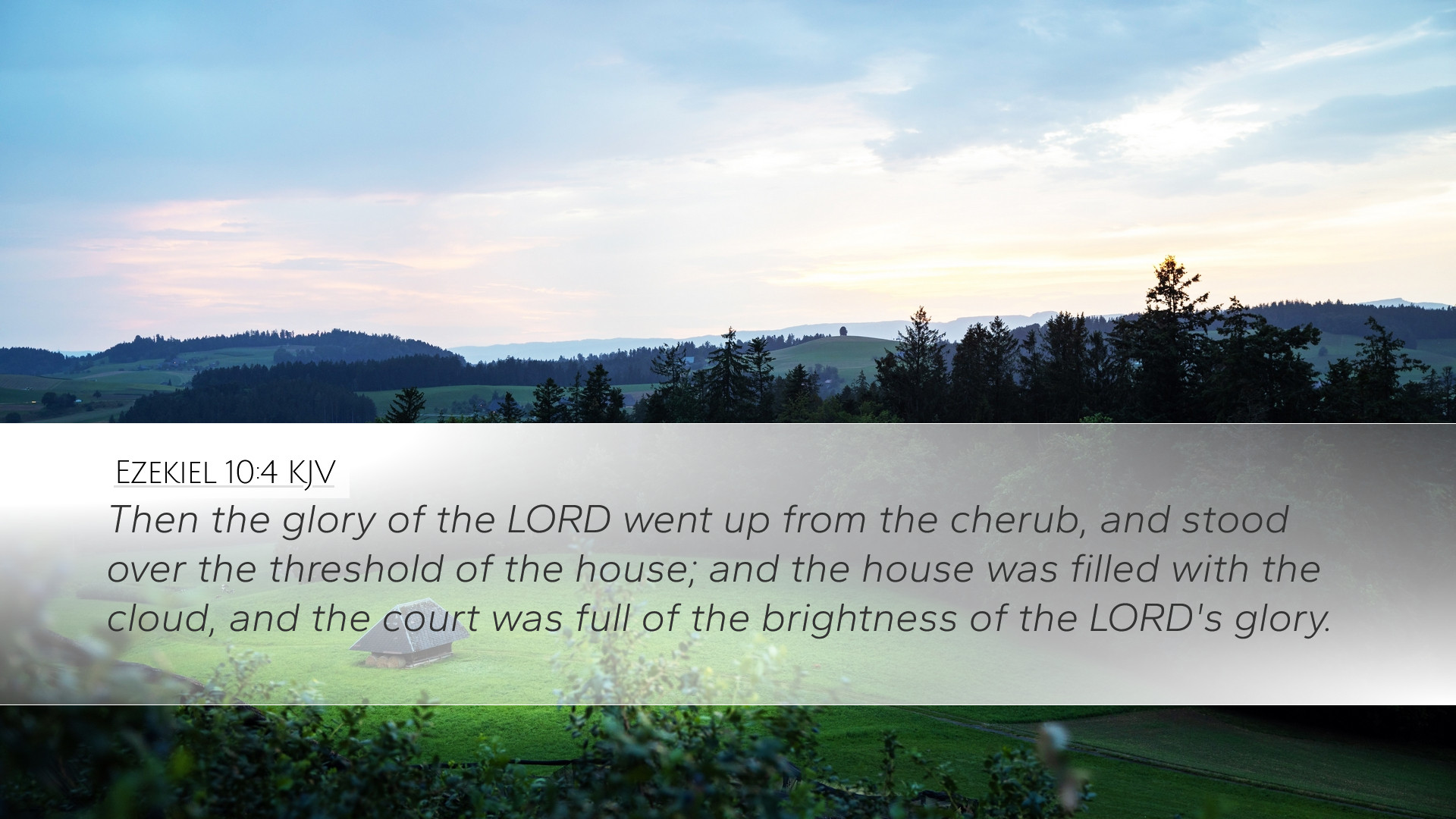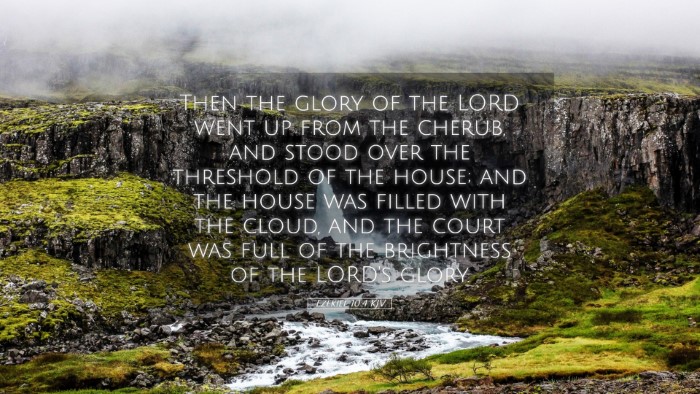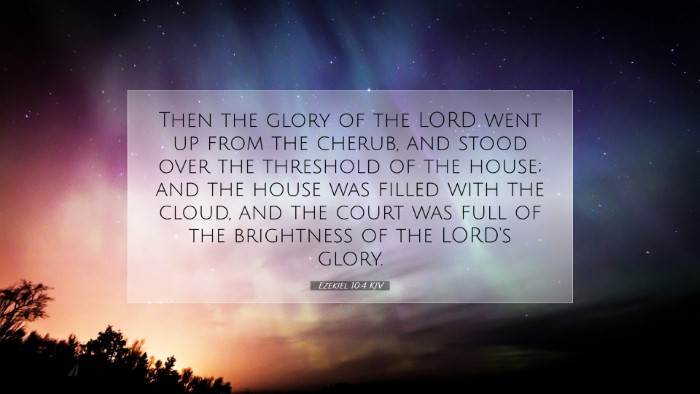Ezekiel 10:4 - Commentary and Insights
This commentary examines Ezekiel 10:4, a pivotal verse in the prophetic narrative that highlights aspects of God’s glory and His judgment upon Israel. The insights synthesize the perspectives of notable public domain commentators including Matthew Henry, Albert Barnes, and Adam Clarke.
Text of the Verse
Ezekiel 10:4 (KJV): “Then the glory of the LORD went up from the cherub, and stood over the threshold of the house; and the house was filled with the cloud, and the court was full of the brightness of the LORD's glory.”
Contextual Background
The Book of Ezekiel is characterized by its vivid imagery and profound symbolism, emerging from the context of the Babylonian exile. Ezekiel was a priest and prophet, called to relay God’s messages to a people in rebellion, mingling judgements and hope. This verse occurs during a vision of the temple and serves as a critical intersection of divine presence and judgment.
Verse Analysis
Divine Glory Manifested
Matthew Henry notes that the glory of the Lord being lifted from the cherub symbolizes a departure of God's presence due to Israel's idolatry. The cherubim represent divine guardianship, and their connection to the Lord signifies the covenant between God and Israel, which has now been compromised through sin.
Transitional Presence
Albert Barnes elaborates that the glory moving towards the threshold indicates a transition. This movement can be understood as a significant shift from Israel’s sacred space being filled with His presence to a stage where judgment is imminent. The towering cloud and the resulting brightness are manifestations of God’s overwhelming holiness and transcendence, indicating both judgment and a hint of His protective fervor.
Theological Implications
Adam Clarke points out that the cloud filling the house symbolizes God's ineffable presence among His people, which is now tarnished by their sin. The use of the term court references the area where the people would gather for worship, prioritizing the community's spiritual condition. Clarke closely notes that this serves as a tangible reminder of what is to come for a people who stray from divine commands.
Symbolism of the Cherubim
Matthew Henry describes cherubim as intelligent beings who are guardians of the holiness of God. Their role in the divine narrative is essential, maintaining the sacredness of God's presence. In this instance, the raising of the glory demonstrates a withdrawal of divine protection and favor, drawing attention to Israel’s failure to honor their covenant relationship with the Lord.
Judgment and Hope
While the central theme of this verse conveys divine judgment, Albert Barnes emphasizes that hope still remains within the narrative. The very presence of God serves as a reminder of His sovereignty and ultimate control over history. Even in judgment, there is an implicit invitation to repentance and restoration.
Applications for Theology and Pastoral Ministry
Reflecting on Ezekiel 10:4 yields profound implications for pastoral theology:
- The Nature of God's Presence: Understanding God's glory as both beautiful and fearsome shapes how ministers communicate God’s holiness.
- The Call to Repentance: This verse serves as a reminder of the need for repentance and vigilance in maintaining a right relationship with God.
- Hope despite Judgment: Ministers should encourage congregants that even when facing judgment, God’s mercy and willingness to forgive remain palpable.
Conclusion
Ezekiel 10:4 encapsulates a critical moment in the prophetic tradition that intertwines judgment, hope, and the nature of divine presence. Through the insights of Henry, Barnes, and Clarke, deeper understanding emerges regarding God’s unyielding holiness and the human responsibility to recognize and reform through it. For pastors, students, theologians, and scholars alike, this verse prompts a reflective consideration of how God relates to His chosen people.


